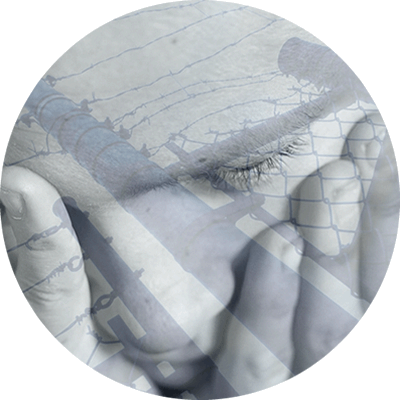 by Gemma Evans
by Gemma Evans
Writer, Editor and SAHM
Members of the legal academia have called for the re-examination of the Juvenile Justice Bill 2014, passed into Law by the Lok Sabha. The law allows those aged between 16 and 18 to be tried and sentenced according to the Indian Penal Code as though they were adults.
Former Chief Justice of India, Altamas Kabir, was joined by various judges and other members of the legal profession, as well as children’s rights activists and members of Parliament, at a consultation organised by SGT University, the Indian Law Institute and the Centre for Child and Law in Delhi. Kabir called the current law ‘a knee-jerk reaction’ which will be counter-productive in the long run. Preeti Jacobs from the National Institute of Mental Health and Neurosciences, told The Hindu Business Online that “juveniles are less culpable and are much more amenable to rehabilitative efforts and thus should not be transferred to the adult criminal justice system.” She added that the current tests to ascertain mental capacity to commit an offence are not based on scientific fact. Other participants noted that regardless of the offence committed, when it comes to juveniles, reform should always be considered a first option. Participants vowed to make a concerted effort to ensure that childhood was nurtured and that children were kept safe.
There are many ways that youths can be assisted to achieve greater integration into society. The first requirement is to identify the issues that may lead them into crime. These can include an addiction to substances and alcohol, desperation owing to poverty, and even anger management issues. Rehabilitation can take the form of inpatient treatment (for those with substance abuse issues) and psychological counseling for youths with anger issues. Often, therapies like Cognitive Behavioral Therapy can help youths learn to channel their anger in a positive way, teaching them vital life skills that can enable them to stay off the streets. Throwing them into prison may solve the short-term problem, but rehabilitation and therapy are the keys to nipping the problem in the bud, rather than allowing youths to enter a lifetime cycle of incarceration.
Research shows that prison is both a poor deterrent and a dangerous punishment for those who are not mentally mature. A fascinating article by R. Daniel Okonkwo in The New York Times, sheds light on the dangers of using incarceration as a punishment for youths. The author notes, “Youth should be treated differently from adults. Research on adolescent brain development does not provide an excuse for culpability, but it shows that youth are amenable to treatment in ways that adults are not.” For starters, prison officials are not educated regarding the particular social, emotional or psychological needs of the youth. Moreover, studies have shown that using prison as a punishment only leads to higher rates of recidivism in the youth, greater harm to society, and greater cost in so far as keeping prisoners in an endless cycle, are concerned.
Okonkwo additionally notes that when youths are placed in jail, they learn the wrong skills. The latter include learning to survive at all costs (even if violence is involved), learning to dominate, using revenge and retaliation, etc. If they are placed in prison, youths are prevented from learning important life skills which will enable them to thrive in the modern world. These include solving problems through positive conflict resolution skills, teamwork, the importance of achievement through discipline and hard work (instead of through domination), etc.
The juvenile system arose from the realization that children have special needs and are in an important, very malleable point in their lives in which it is vital that they learn how to overcome conflict, learn from past mistakes and look forward to a better future. An amendment to the Juvenile Justice Bill is sorely required if we are to ensure the right of Indian youth to dignified and productive rehabilitation.
Thehindubusinessline.com, Juvenile Justice Bill 2014: Legal academia calls for ‘restorative’ justice, accessed May, 2015.
Indiatoday.intoday.in, Modi Cabinet approves amendments to Juvenile Justice Act, accessed May, 2015.
NDTV.com, Child Rehabilitation needed in Juvenile justice: Chief Justice of India Altamas Kabir, accessed May, 2015.
TimesofIndia.com, Child Rehabilitation Must in Juvenile Justice System. Chief Justice of India, accessed May, 2015.
Psychguides.com, Anger Symptoms, Causes and Effects, accessed May, 2015.
The NewYork Times, Prison Is a Poor Deterrent, and a Dangerous Punishment, accessed May, 2015.
UNODC, International Statistics on Crime and Justice, accessed May, 2015.